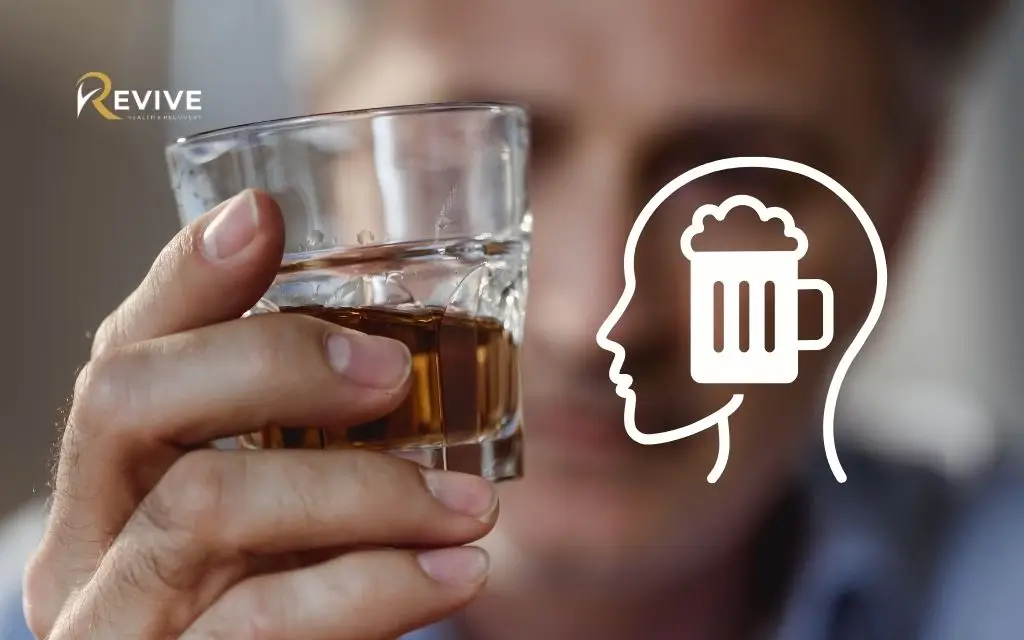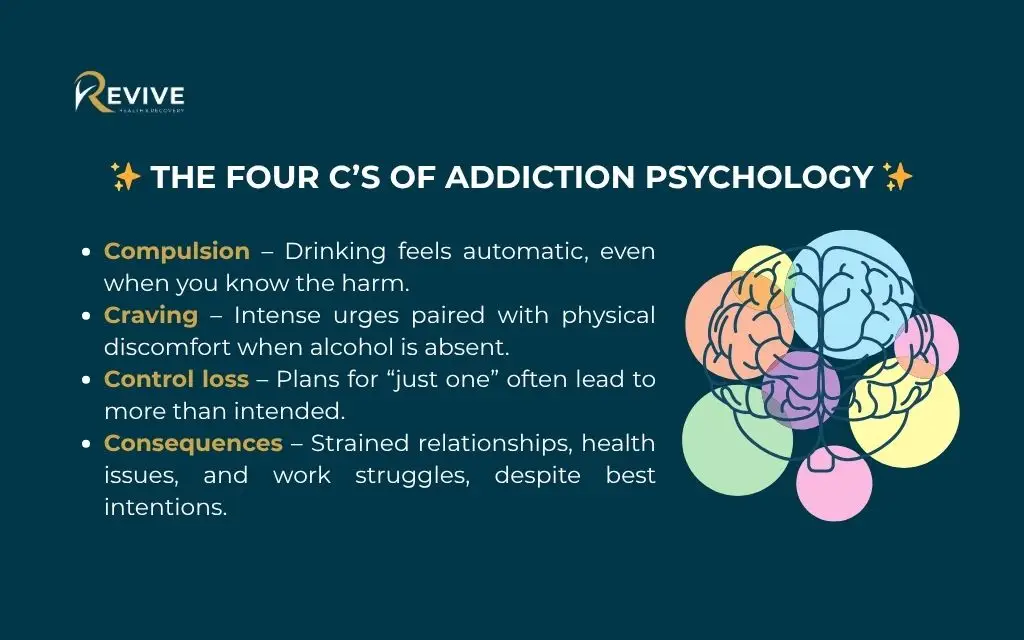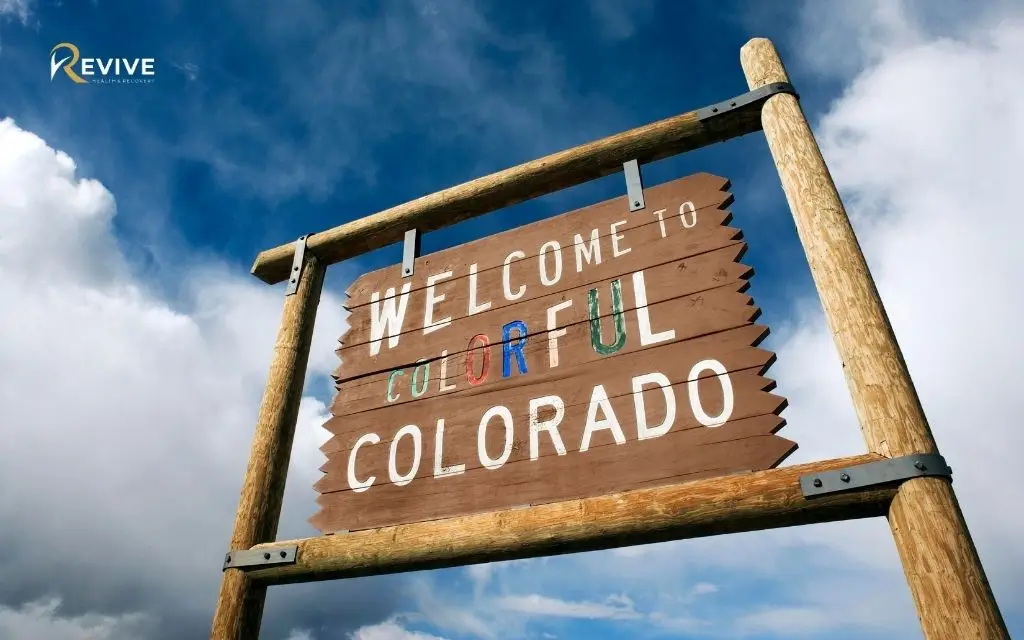Have you ever wondered why overcoming alcohol addiction feels so overwhelming? You’re not alone. In Colorado, where we rank ninth in the nation for substance abuse rates, thousands face this challenge daily. The struggle goes beyond willpower. It involves complex brain chemistry, emotional regulation, and environmental factors unique to our state.
Alcohol use disorder is a chronic brain disease. It affects how you think, feel, and behave. Understanding the science behind addiction can change everything. This article provides evidence-based insights into the psychological and neurological aspects of alcohol dependency. You’ll learn about the alcohol-depression connection, discover Colorado-specific recovery challenges, and find proven strategies to overcome alcohol dependence.
Whether you’re personally struggling or supporting someone you care about, this guide offers hope and practical direction. Recovery is possible with the right support and understanding.
The neuroscience of alcohol addiction: Why your brain craves alcohol
Dopamine pathways and reward systems
Your brain creates a powerful reward system through dopamine release. When you drink alcohol, this system activates intensely. The surge feels good. Your brain remembers this feeling and wants to repeat it.
This process happens automatically. Alcohol hijacks the natural reward circuitry designed for survival activities like eating or connecting with others. Over time, your brain prioritizes alcohol over everything else. The neurological changes make overcoming alcohol addiction particularly challenging without professional support.
Here’s why willpower alone rarely works: Your prefrontal cortex, responsible for decision-making, becomes less active. Meanwhile, the limbic system, which drives emotional responses and cravings, becomes hyperactive. This imbalance creates a neurological gap between what you know you should do and what you feel compelled to do.
Need help understanding your cravings? Contact Revive Health Recovery at (303) 268-4655. Our specialists can explain your specific neurological patterns and create a personalized recovery plan.

Neurochemical changes in long-term use
Long-term alcohol use disrupts several key neurotransmitter systems. GABA (gamma-aminobutyric acid) normally calms your brain. Alcohol enhances GABA activity, creating relaxation and reduced anxiety. Your brain compensates by reducing natural GABA production. When you stop drinking, you experience heightened anxiety and restlessness.
Glutamate works opposite to GABA. It excites your nervous system. Chronic alcohol use suppresses glutamate. When alcohol leaves your system, glutamate rebounds intensely. This causes tremors, agitation, and in severe cases, seizures during withdrawal.
Serotonin regulates mood, sleep, and appetite. Alcohol temporarily increases serotonin levels, improving mood. With repeated use, your brain produces less serotonin naturally. This contributes to depression and anxiety during early recovery. The timeline for neurochemical rebalancing typically spans 90 to 180 days, though individual experiences vary.
Physical brain structure changes too. The hippocampus, essential for memory formation, shrinks with chronic use. The prefrontal cortex thins, affecting judgment and impulse control. These structural changes drive compulsive behavior even when you consciously want to stop.
The psychology of addiction: Understanding your feelings
The four C’s of addiction psychology
Understanding addiction psychology starts with four core concepts: compulsion, craving, control, and consequences.
- Compulsion drives you to drink despite knowing the harm. This goes beyond conscious choice. Your brain creates automatic patterns linking certain situations, emotions, or times of day with drinking. Breaking these patterns requires more than determination. It demands new neural pathways built through consistent alternative behaviors.
- Craving combines psychological urgency with physical discomfort. You might feel restless, anxious, or empty without alcohol. Your body has adapted to alcohol’s presence. It signals distress when you don’t drink. These cravings peak during early recovery, typically intensifying around day three to five of abstinence.
- Control loss manifests as inability to stop after starting. You might plan to have one drink and end up finishing the bottle. You might promise yourself you won’t drink today, then find yourself at the liquor store by evening. This isn’t a weakness. It reflects the neurological changes discussed earlier.
- Consequences accumulate despite your best intentions. Relationships suffer. Work performance declines. Health problems emerge. Yet the addiction cycle continues. Understanding this pattern helps reduce shame and self-blame while motivating professional treatment.

Emotional regulation and alcohol dependency
Many people use alcohol to manage difficult emotions. Stress, anxiety, and depression feel temporarily relieved by drinking. This creates a problematic pattern. Instead of developing healthy coping mechanisms, you rely on alcohol for emotional regulation.
The psychological function of alcohol as a coping mechanism seems effective initially. You feel calmer. Social anxiety decreases. Painful memories fade. However, this relief comes at a cost. Your natural emotional regulation skills atrophy. You become increasingly dependent on alcohol to feel normal.
Why do emotions feel overwhelming in early recovery? Without alcohol’s numbing effect, you experience the full intensity of feelings you’ve been avoiding. Additionally, your emotional regulation systems need time to rebuild. This vulnerability period typically lasts 30 to 90 days. Professional support during this phase proves crucial for successful recovery.
Struggling with emotional management? Revive Health Recovery offers evidence-based therapies to help you develop healthy coping strategies. Call us at (303) 268-4655 to learn more about our outpatient programs.
Dual diagnosis: The alcohol-depression connection
Colorado’s mental health landscape
Colorado faces unique mental health challenges. Our high altitude affects mood regulation and substance use patterns. Research suggests lower oxygen levels at elevation may contribute to increased depression rates. Seasonal depression also impacts many Colorado residents, particularly during winter months when daylight hours shorten.
Denver adults show a 27% binge drinking rate, significantly exceeding national averages. This statistic reflects both our drinking culture and underlying mental health needs. Notably, Colorado ranks first nationally for individuals needing substance abuse treatment but not receiving it. This gap creates a vulnerable population struggling without adequate support.
Co-occurring disorders are common in our state. Approximately 63,200 Denver residents were dependent on drugs or alcohol in 2010, with many experiencing simultaneous mental health conditions. Understanding this dual diagnosis becomes essential for effective treatment.
Breaking the cycle: Depression fuels addiction
Depression symptoms often drive alcohol use. You might drink to numb emotional pain, escape negative thoughts, or fill a sense of emptiness. Alcohol temporarily elevates mood through dopamine release. This reinforces the pattern.
The biochemical relationship runs deeper. Depression involves serotonin and norepinephrine deficiencies. Alcohol initially boosts these neurotransmitters. With chronic use, however, alcohol depletes them further. This creates a vicious cycle where drinking worsens the depression you’re trying to escape.
Treating both conditions simultaneously proves essential. Addressing only addiction or only depression leaves you vulnerable to relapse. Integrated dual diagnosis treatment targets both conditions together, recognizing their interconnected nature.
The recovery paradox: Why sobriety initially increases depression
Many people feel worse before feeling better in recovery. This phenomenon, called post-acute withdrawal syndrome, confuses and discourages individuals. Understanding why this happens helps you persist through difficult early weeks.
Neurochemical rebalancing takes time. Your brain adapted to alcohol’s constant presence. It reduced natural production of mood-regulating neurotransmitters. When you stop drinking, a deficit exists. Your brain gradually restarts production, but this process unfolds slowly.
Anhedonia describes the inability to feel pleasure during early recovery. Activities that once brought joy feel flat or meaningless. This occurs because your dopamine system remains depleted. The timeline for mood stabilization varies individually, but typically improves significantly by day 60 to 90.
Colorado-specific factors may extend this timeline. High altitude affects oxygen delivery to the brain. Seasonal variations in sunlight exposure influence serotonin production. Awareness of these factors helps you maintain realistic expectations and seek appropriate support.
Environmental and social factors in Colorado
Denver’s drinking culture: Navigating social pressures
Denver’s thriving brewery culture creates unique challenges for overcoming alcohol addiction. Our city boasts over 150 breweries. Social gatherings, professional networking events, and recreational activities often center around alcohol. This environment makes sobriety feel isolating.
Professional networking events frequently serve alcohol. Business deals happen over drinks. Team building activities include brewery tours. These situations require preparation and boundary-setting skills. Having a script ready helps you decline drinks confidently.

Strategies for maintaining sobriety include:
- Identify alcohol-free venues. Denver offers coffee shops, juice bars, climbing gyms, and outdoor spaces perfect for socializing without alcohol pressure.
- Build a sober social network. Connect with others in recovery through support groups or activities. These relationships provide understanding and accountability.
- Practice assertive communication. Prepare responses to offers of drinks. Simple statements work best: “I’m not drinking tonight” or “I’m focusing on my health right now.”
- Plan your exit strategy. Know when and how you’ll leave situations that become uncomfortable. Permission to leave early protects your recovery.
Altitude and physiology: Colorado-specific considerations
High elevation intensifies alcohol’s effects. Lower oxygen levels mean alcohol reaches your bloodstream faster and hits harder. This creates several complications for recovery.
Dehydration occurs more easily at altitude. Alcohol is already dehydrating. Combined with Colorado’s dry climate, this significantly impacts physical recovery. Proper hydration becomes crucial during detoxification and early sobriety.
Sleep patterns change at elevation. Many people experience disrupted sleep when adjusting to altitude. Alcohol withdrawal already causes insomnia. These factors compound, making rest difficult during early recovery.
Adapting recovery strategies for high-altitude environments means:
- Increase water intake significantly. Aim for at least 10 to 12 glasses daily during early recovery.
- Allow extra time for physical adjustment. Your body needs more recovery time at elevation than at sea level.
- Monitor for altitude-related symptoms. Headaches, fatigue, and nausea might stem from elevation rather than withdrawal. Distinguish between these causes with medical guidance.
- Consider temporary relocation for detox. Some individuals benefit from beginning recovery at lower elevation, then returning to Colorado after initial stabilization.
Ready to start recovery with Colorado-specific support? Revive Health Recovery understands the unique challenges you face. Email us at contact@revivehealthrecovery.com to discuss your situation.
Evidence-based recovery methods: What science shows works
Cognitive behavioral therapy for addiction
Cognitive behavioral therapy (CBT) effectively addresses the thought patterns driving alcohol use. CBT helps you identify triggers, challenge distorted thinking, and develop healthier responses to difficult situations.
The therapy focuses on three key areas:
- Identifying triggers. You learn to recognize situations, emotions, or thoughts that precede drinking. Common triggers include stress, social situations, specific locations, or certain times of day.
- Changing thought patterns. CBT reveals automatic negative thoughts that lead to drinking. “I can’t handle this stress without a drink” becomes “I can use breathing exercises to manage this stress.”
- Developing coping mechanisms. You practice new responses to triggers. Instead of reaching for alcohol when anxious, you might call a supportive friend, exercise, or practice mindfulness.
Local CBT providers in Denver specialize in dual diagnosis treatment. Revive Health Recovery offers CBT as part of comprehensive outpatient programs. Our therapists understand both addiction psychology and co-occurring mental health conditions.
Medication-assisted treatment
Medication-assisted treatment (MAT) combines behavioral therapy with FDA-approved medications. Three primary medications help with alcohol use disorder:
- Naltrexone blocks opioid receptors, reducing the rewarding effects of alcohol. Drinking feels less pleasurable, decreasing motivation to continue. Naltrexone comes in daily pills or monthly injections.
- Acamprosate stabilizes brain chemistry disrupted by chronic alcohol use. It reduces cravings and withdrawal discomfort. This medication works best after detoxification completion.
- Disulfiram creates unpleasant physical reactions when you drink alcohol. Nausea, flushing, and headaches occur if alcohol is consumed. This creates a deterrent effect.
Benefits of combining medication with therapy include reduced cravings, improved therapy engagement, and higher long-term success rates. Medications address the biological component while therapy develops psychological and behavioral skills.
Colorado’s approach to MAT accessibility continues improving. More providers offer these services. Insurance coverage expands. However, stigma still exists. Many people believe medication means you’re “not really sober.” This misconception prevents some from accessing helpful treatment.
Support groups and community connection
Support groups provide peer understanding, accountability, and shared wisdom. Several evidence-based options exist beyond traditional Alcoholics Anonymous.
- Alcoholics Anonymous (AA) uses a 12-step spiritual framework. Meetings occur daily across Denver. AA emphasizes fellowship, sponsorship, and working through sequential steps toward recovery.
- SMART Recovery offers a science-based alternative. It uses cognitive-behavioral techniques and emphasizes self-empowerment rather than spiritual surrender. SMART Recovery teaches practical skills for managing urges and building motivation.
- Refuge Recovery incorporates Buddhist principles and mindfulness practices. It emphasizes meditation and compassionate self-reflection.
- Denver-specific recovery communities include:
- Phoenix Multisport provides free sober active community events. You can participate in running groups, rock climbing, yoga, and other activities while building sober connections.
- Sober Living America operates several houses in Denver offering structured living environments during early recovery.
- Denver Recovery Group hosts multiple weekly meetings using various recovery philosophies.
Community connection proves crucial for long-term success. Isolation increases relapse risk. Building relationships with others who understand your journey provides hope and practical support.
Building your recovery support system
Professional treatment team assembly
Successful recovery typically requires multiple professionals working together. Understanding different roles helps you build an effective team.
- Addiction counselors specialize in substance use disorders. They provide individual therapy, group counseling, and relapse prevention planning. Counselors often hold certifications like Licensed Addiction Counselor (LAC) or Certified Addiction Specialist (CAS).
- Therapists address underlying mental health conditions contributing to addiction. Clinical psychologists, licensed clinical social workers (LCSW), and licensed professional counselors (LPC) provide therapy for depression, anxiety, trauma, and other co-occurring disorders.
Understanding the difference matters. Addiction counselors focus primarily on substance use patterns and recovery skills. Therapists address broader emotional and psychological issues. Dual diagnosis treatment requires both specialties.
- Psychiatrists provide medical management for co-occurring mental health conditions. They prescribe and monitor psychiatric medications, assess for dual diagnosis, and coordinate with other providers. Finding a psychiatrist experienced in addiction medicine ensures integrated care.
- Medical doctors monitor physical health during recovery. Primary care physicians or addiction medicine specialists track liver function, cardiovascular health, nutritional status, and other physical concerns. Regular medical monitoring catches complications early.
Contact Revive Health Recovery at (303) 268-4655 to discuss building your professional treatment team. We can help coordinate care among specialists.
Family and social support strategies
Family involvement strengthens recovery outcomes. Loved ones need education about addiction as a brain disease, not a moral failure. This understanding reduces blame and increases supportive behaviors.
- Educating loved ones includes sharing how alcohol changes brain chemistry, why relapse happens even with good intentions, and what behaviors help versus hurt recovery. Many treatment programs offer family education sessions.
- Setting healthy boundaries protects both you and your relationships. Boundaries might include: not enabling drinking behavior, not accepting abusive behavior, requiring treatment participation, or limiting contact during active addiction.
Healthy boundaries differ from ultimatums. They focus on self-protection rather than controlling the other person. “I won’t give you money while you’re drinking” maintains a boundary. “Stop drinking or I’m leaving forever” creates an ultimatum.
Communication techniques for rebuilding trust include:
- “I” statements. “I feel hurt when plans change last minute” rather than “You always flake on me.”
- Active listening. Repeat back what you heard to confirm understanding before responding.
- Scheduled family meetings. Regular times to discuss concerns prevent buildup of resentment.
- Therapy together. Family therapy sessions help navigate difficult conversations with professional guidance.
Recovery changes family dynamics. Roles shift as you become healthier. Some relationships improve dramatically. Others may need to end. Both outcomes are normal parts of overcoming alcohol addiction.
Practical recovery strategies for Colorado residents
Leveraging Colorado’s natural environment
Colorado’s outdoor spaces offer powerful recovery support. Nature exposure reduces stress, improves mood, and provides healthy alternatives to drinking.
Outdoor therapy programs combine clinical treatment with wilderness activities. Adventure-based recovery programs use hiking, camping, and challenge courses to build confidence, practice teamwork, and develop healthy coping skills. Several organizations in Colorado specialize in outdoor recovery programs.
Regular outdoor activities support sobriety through:
- Physical health benefits. Exercise releases endorphins, improving mood naturally. Hiking at altitude builds physical strength and stamina.
- Social connection. Join hiking groups, climbing communities, or trail running clubs. These provide sober social networks with shared healthy interests.
- Mindfulness opportunities. Nature encourages present-moment awareness. The focus required for technical activities like rock climbing or skiing prevents rumination on cravings.
- Sense of accomplishment. Reaching a mountain summit or completing a challenging trail builds self-efficacy. This confidence transfers to recovery efforts.
- Connecting with nature regulates emotions more effectively than many people expect. Research shows time outdoors reduces anxiety, improves sleep, and increases positive mood. For Colorado residents, our mountain access provides a unique recovery resource unavailable in many other locations.
Managing triggers in Denver’s social scene
Denver offers diverse alcohol-free entertainment options. Finding these alternatives helps you maintain social connections without compromising recovery.
Restaurant venues without alcohol focus:
The Watercourse serves plant-based cuisine without liquor license. Steuben’s offers nostalgic comfort food with emphasis on food rather than drinks. Many Denver restaurants now feature extensive non-alcoholic beverage programs including sophisticated mocktails and craft sodas.
Entertainment options include:
Red Rocks Amphitheatre hosts concerts in an inspiring natural setting. Meow Wolf Denver provides immersive art experiences. Comedy clubs offer early shows before alcohol becomes central. The Denver Art Museum, Science Museum, and Botanical Gardens provide engaging activities.
- Professional networking without alcohol requires intention. Suggest coffee meetings instead of happy hours. Host or attend breakfast networking events. Join professional organizations that offer varied event types beyond drinking-focused gatherings.
- Dating and relationships in recovery present unique challenges. Be honest about your sobriety from the beginning. This filters for compatible partners and prevents awkward situations later. Plan creative dates like escape rooms, cooking classes, or outdoor adventures. Many people appreciate the creativity of alcohol-free dating.
Long-term recovery: Maintaining sobriety and mental health
Relapse prevention psychology
Recovery is a process, not a destination. This mindset shift reduces the perfectionism that often leads to relapse. Viewing recovery as ongoing growth rather than a fixed achievement creates sustainability.
Understanding that relapse sometimes occurs doesn’t mean accepting it as inevitable. Instead, recognize the warning signs and intervene early. Common relapse risk factors include:
- Emotional relapse patterns. Isolating, not attending support groups, poor self-care, and bottling up emotions often precede physical relapse.
- Mental relapse signs. Romanticizing past drinking, lying, planning relapse, or thinking about people/places/things associated with drinking indicate escalating risk.
- Physical relapse. This final stage involves actual drinking. Intervening during emotional or mental relapse prevents progression to physical relapse.
Personal risk factors vary. Maybe stress at work triggers cravings. Perhaps loneliness increases vulnerability. Relationship conflicts might weaken resolve. Identifying your specific patterns allows targeted prevention strategies.
Colorado statistics show approximately 40 to 60 percent of people experience some form of relapse during recovery. This matches national averages. However, relapse rates decrease significantly with comprehensive treatment, ongoing support group participation, and strong social support systems.
Relapse doesn’t mean failure. It provides information about what needs strengthening in your recovery plan. Immediate reconnection with support resources prevents relapse from becoming prolonged.
Building a meaningful life in recovery
Recovery creates space for rediscovering purpose beyond addiction. What matters to you? What brings genuine satisfaction?
Finding purpose might include:
- Career development. Return to education, pursue promotions, or change careers entirely. Sobriety removes obstacles to professional growth.
- Creative pursuits. Art, music, writing, or other creative outlets provide fulfillment and emotional expression.
- Physical goals. Train for a marathon, learn rock climbing, or master yoga. Physical achievement builds confidence transferable to all life areas.
- Spiritual exploration. Whether through organized religion, nature connection, or personal philosophy, many people develop spiritual practices in recovery.
- Educational goals often emerge once sobriety stabilizes. You might complete a delayed degree, learn new skills, or pursue certifications. Education opens opportunities while building self-esteem.
- Contributing to the recovery community helps others while reinforcing your own sobriety. Sponsorship, volunteering at treatment centers, or sharing your story publicly creates meaning from past struggles. This transformation from suffering to service often becomes central to long-term recovery satisfaction.
Ready to build your meaningful recovery? Visit Revive Health Recovery at 1427 S Federal Blvd, Denver, CO 80219, or call (303) 268-4655 to start your journey today.
FAQs about overcoming alcohol addiction
How long does it take to overcome alcohol addiction psychologically?
Neurochemical rebalancing typically requires 90 to 180 days. Emotional healing continues for one to two years. Individual factors like severity of addiction, co-occurring mental health conditions, and support system quality affect timelines. Professional treatment accelerates recovery. Contact Revive Health Recovery for personalized timeline expectations based on your situation.
Can I overcome alcohol addiction if I also have depression?
Yes. Dual diagnosis treatment addressing both conditions simultaneously shows better outcomes than treating either alone. Revive Health Recovery specializes in integrated care for alcohol use disorder and depression. Our evidence-based approach helps you build sustainable recovery while managing mental health symptoms. Call (303) 268-4655 to learn more.
What should I expect emotionally in the first 90 days of recovery?
Expect mood swings, anxiety, depression, and anhedonia. These represent normal neurochemical rebalancing, not permanent conditions. Symptoms typically peak around day 30 to 60, then gradually improve. Professional support and peer connection make this phase manageable. Revive Health Recovery provides comprehensive support throughout early recovery challenges.
How do I handle social pressure to drink in Colorado’s brewery culture?
Develop clear scripts for declining drinks: “I’m not drinking tonight” or “I’m focusing on my health.” Identify alcohol-free venues like coffee shops, climbing gyms, or outdoor spaces. Build a sober social network through support groups or recovery-focused activities. Denver’s sober community continues growing, with many residents prioritizing health over alcohol consumption.
Is it normal to feel worse before feeling better in recovery?
Yes. Post-acute withdrawal syndrome causes temporary symptom increases. Your brain readjusts to functioning without alcohol. Discomfort typically peaks around day 30 to 60 before improvement begins. This pattern is predictable and temporary. Professional support helps you navigate this challenging phase. Contact Revive Health Recovery for guidance through early recovery symptoms.
Take the first step: Revive Health Recovery can help
Overcoming alcohol addiction requires understanding, support, and evidence-based treatment. Revive Health Recovery in Denver offers comprehensive outpatient programs specifically designed for individuals with dual diagnosis needs. Our licensed addiction counselors and mental health professionals understand the unique challenges facing Colorado residents.
Why choose Revive Health Recovery:
We provide specialized dual diagnosis treatment for alcohol use disorder and depression. Our team uses evidence-based therapies including cognitive behavioral therapy and motivational interviewing. Flexible outpatient programs fit your lifestyle and schedule. Our Denver location offers easy access throughout the metro area. We accept insurance and offer affordable payment options for those without coverage.
What makes us different:
Our team includes professionals with personal recovery experience. This brings deep empathy and understanding to our work. We recognize that enduring sobriety requires addressing underlying triggers, building self-esteem, and fostering resilience. Our approach combines proven clinical strategies with compassionate support.
We offer dedicated family services through our family liaison. Strengthening family relationships enhances your chances of long-term success. We collaborate with each person to develop a roadmap incorporating essential life skills and individual goals.
Conclusion
Overcoming alcohol addiction combines scientific understanding with personal commitment. The neurological changes affecting your brain can reverse. The emotional overwhelm of early recovery gradually subsides. The co-occurrence of depression and alcohol use disorder doesn’t doom you to failure. With proper dual diagnosis treatment, both conditions improve together.
Colorado’s unique environmental factors present both challenges and opportunities. Our drinking culture requires navigation skills. Our altitude affects physiology. Yet our natural spaces offer powerful recovery support. The growing sober community provides connection and hope.
Evidence-based methods work. Cognitive behavioral therapy changes thought patterns. Medication-assisted treatment addresses brain chemistry. Support groups provide community. Professional guidance coordinates care. Building a comprehensive support system maximizes your success potential.
Recovery is possible. Thousands of Colorado residents overcome alcohol addiction each year. You can too.
Whether you’re struggling with alcohol use disorder, dual diagnosis, or supporting someone facing these challenges, Revive Health Recovery stands ready to help. Our evidence-based treatment programs, compassionate staff, and understanding of Colorado-specific factors position us to guide you through every step of overcoming alcohol addiction. Reach out today. Hope and healing await.



